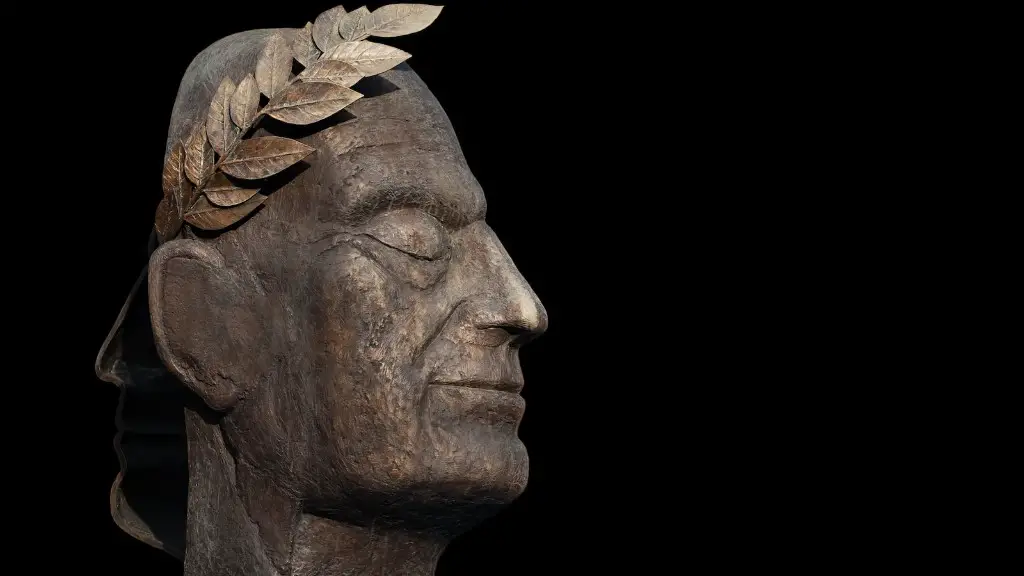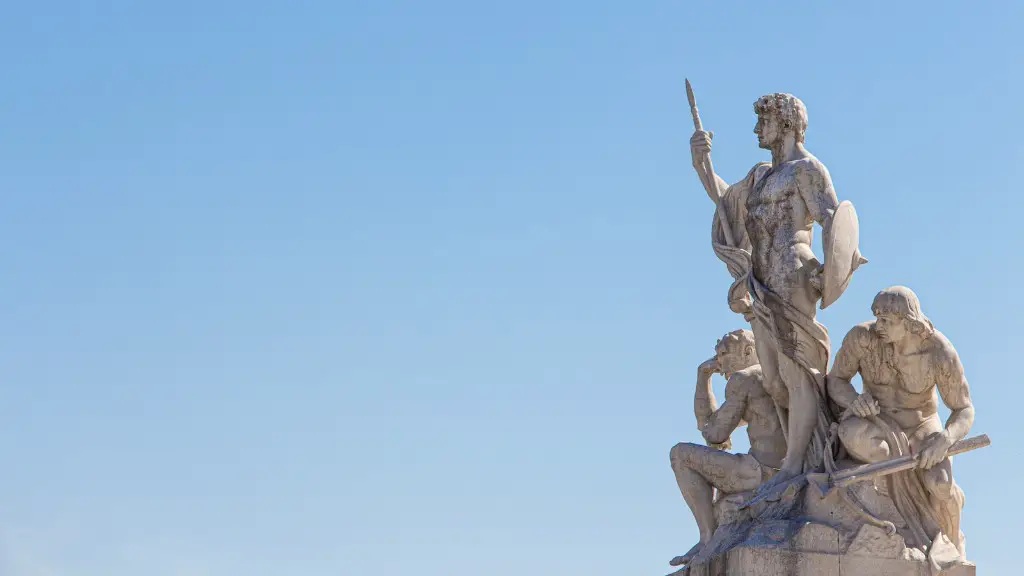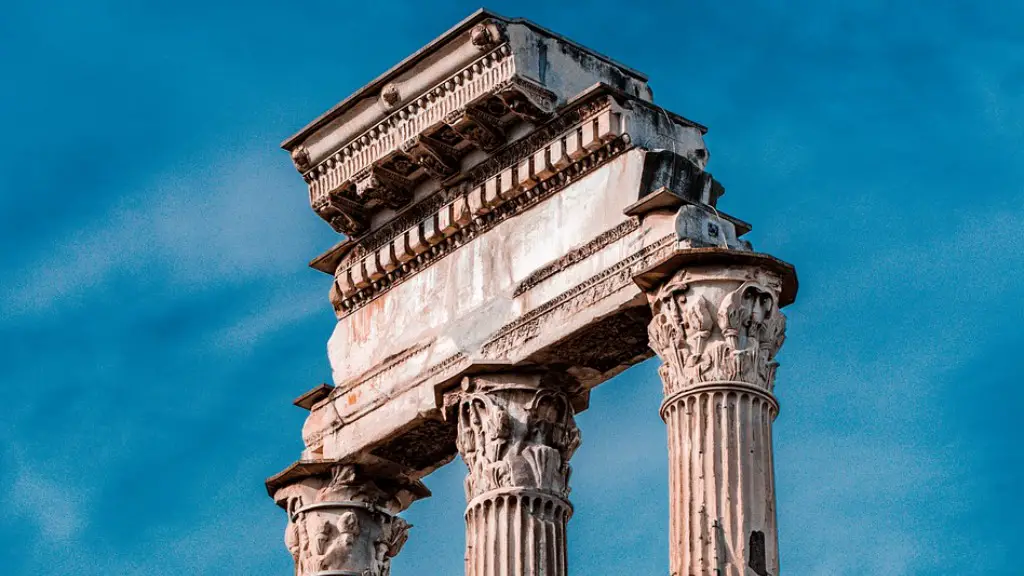Octavian was one of the most influential figures in Ancient Rome. He was born into a patrician family in 63 BC and rose to power at a young age. Octavian was the adopted son of Julius Caesar and would eventually become the first Roman Emperor, taking the name Augustus. He is remembered for leading Rome through a period of unprecedented prosperity and stabilizing the Roman Republic after the tumultuous period that followed Julius Caesar’s death. He was a skilled military leader and politician, and he left a legacy of reform and order that made Rome the leading political and cultural power in the Mediterranean world.
Octavian was not born into privilege, but he quickly rose to prominence because of his adopted father’s influence. He became a member of the Senate at an unusually young age and was appointed to a pontificate. He was given an unprecedented level of authority and used it to expand colonial holdings and gain support from the military. He secured a number of political and military alliances, which allowed him to become one of the most powerful political figures in Rome. His rise to power was marked by a series of civil wars as he fought to gain control of the Roman Republic. His victory over Mark Antony at the Battle of Actium in 31 BC marked the beginning of the Roman Empire.
Octavian was a masterful politician. He balanced the power of the Senate with a standing army and taxed the citizens heavily while implementing a number of reforms. He worked to increase efficiency in government institutions and oversaw the completion of many major buildings, roads and monuments. He also made sure to cultivate popular support by appearing as a champion of traditional Roman values and Roman religion. He held games and distributed food to the poor. More importantly, he maintained a sense of stability, which allowed Rome to thrive economically.
One of Octavian’s most successful policies was his taxation system. He set up a collection system that allowed him to gain revenues from all parts of the Roman world. He used the proceeds from taxation to fund a number of public works and to support the military. Octavian also founded a number of Roman colonies in strategic locations throughout the Mediterranean, allowing Rome to extend its control over vast portions of the ancient world.
Octavian was also a masterful military leader. He led campaigns against the Parthian Empire, the Sicilian Empire, and in Spain. He led Roman legions in battle and managed to maintain a strong military. His victory at the Battle of Actium sealed his reign as Emperor and provided opportunities to expand Roman power and influence. He also had an eye for detail, reviewing the organization of campaigns and providing strategic advice.
Octavian is remembered as one of the most powerful and influential figures in the history of Rome. He brought the Republic to an end and established a period of stability and prosperity that lasted centuries. He was a talented politician, diplomat, and military leader. He was also remembered as a reformer who put an end to corruption and brought an unprecedented level of efficiency to government institutions.
Political Legacy
Octavian’s political legacy was one of stability and prosperity. He reorganized government institutions, created a strong military, and reformed taxation. He also cultivated a cult of personality, appearing as the champion of Roman values and traditions. This allowed him to gain support from the people and to maintain a sense of order in the Roman world. He also passed a number of initiatives that improved the lives of ordinary citizens, including the construction of a system of roads and the establishment of public works. His legacy lasted long after his death and was a major factor in Rome’s emergence as a leading political power.
Military Career
Octavian’s military career was marked by a number of successful campaigns throughout the Roman world. He led campaigns in Spain and in the eastern Mediterranean, gaining skillful victories over the Parthian Empire and the Sicilian Empire. He was a gifted leader who had an eye for detail, providing strategic advice to his generals. He also had a flair for strategy, successfully negotiating alliances in strategic locations. His most famous victory came at the Battle of Actium in 31 BC, which effectively ended the Roman Republic and secured Octavian’s rise as the first Roman Emperor.
Religion and Culture
Octavian held an immense amount of influence over Roman religion and culture. He funded a number of public festivals and celebrations, which helped to maintain a sense of stability and unity throughout the Roman world. He also declared himself a priest and supported the Roman religion and the traditional gods. This helped to give him the popular support he needed to maintain his power and influence. He was also a patron of the arts, supporting a number of literature, theatre and music projects.
Foreign Relations
Octavian was a talented statesman, engaging in a number of foreign affairs initiatives. He established diplomatic ties with a number of foreign kingdoms, allowing him to expand Roman power and influence. He also engaged in a number of wars and conflicts, securing victories in Spain and the eastern Mediterranean. His diplomacy also helped to secure a number of strategic alliances, which allowed Rome to consolidate its power in the Mediterranean world.
Reformation
Octavian was a reformer of the Roman system. He worked to reduce corruption in government institutions, increased efficiency, and established a taxation system that allowed him to fund a number of public works. He also made sure to cultivate popular support and maintained a sense of stability that allowed Rome to continue to prosper and grow.
Legacy
Octavian was one of the most influential figures in Ancient Rome. His legacy lasted long after his death, with the period of prosperity and stability that he brought to Rome lasting centuries. He was a masterful politician and diplomat, a talented military leader, and a reformer of the Roman system. He was also remembered as a champion of Roman values and traditions, and is remembered as one of the most influential figures in the history of Rome.


